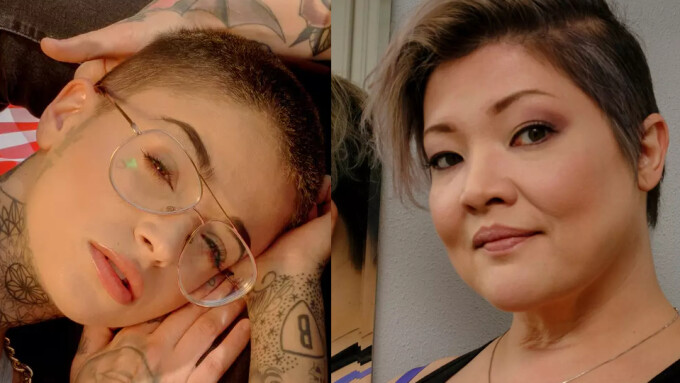NEW YORK — The New York Times has published an article that focuses on the creative solutions that have made it possible for a new wave of women to lead a charge to shoot, direct and star in their own porn scenes.
“Amateurs are flooding the internet; piracy has addled the once-dominant studios; production has atomized and scattered,” the Times said in a published piece called “Who Gets to Be Sexy?”
“Women are rising up,” the Times said.
The Times focuses on a little-known fact outside the adult entertainment industry: that the decentralization of the business is giving workers more power.
“It’s now so easy to produce and distribute your own content that workers are a lot less dependent on the boss,” said Heather Berg, a lecturer in gender studies at USC who studies labor issues in pornography.
The Times noted that means performers can now run their own shows.
“The rise of webcam work has opened up a style of performance that can be totally controlled by the model in her bedroom,” the Times said. “The accessibility of film cameras, alternative hosting sites and webcam tools like Skype have made way for a wider range of sexual and gender representations.
"And social media has given women a voice offscreen, where they’re puncturing mainstream stereotypes while calling out destructive industry practices, too.”
“Doing porn, in the beginning, was never about politics,” said Kelly Shibari, an adult plus-size performer who currently acts as a publicist. “I wasn’t trying to break any barriers. I just wanted to have a good time.”
“Since the recession, we’ve seen this giant influx of women who are older, college educated and have backgrounds in business. Now we have all these empowered women who want to speak up.”
Next, the Times took a look at Pink and White Productions, which is run by the director Shine Louise Houston.
“In her time working for a sex shop, she had noticed a lack of queer material, so she decided to direct her own,” the Times said. “In her first film, ‘Crash Pad’ (2006), she cast Jiz Lee, a nonbinary artist and porn novice, to star.
“I had always been interested in sex work, but I didn’t think I could do it without changing myself to present more in line with mainstream aesthetics — how I looked and how I had sex,” Lee said. “When I started, it seemed like everybody looked like Stormy Daniels.”
“[W]e’re seeing more trans people in porn, people of color, queer people, people of size, older people, people with disabilities,” Lee said. “We have a much more expansive vision of what’s possible.”
Nina Hartley, a performer, sex educator and author, told the Times: “My mantra from the very beginning was this: If I don’t do something at home for free and for fun, I don’t do it on camera for money.”
“I don’t have an agent. I book myself,” performer Missy Martinez told the Times. “Just a few years back, if you didn’t have an agent, you didn’t get work. Now performers are saying, ‘I can do this on my own.’”
The Times noted that the porn biz had a “moment of reckoning” with sexual misconduct several months ago when the performer Leigh Raven and her wife, the director Nikki Hearts, posted a wrenching hourlong video to YouTube, in which Raven described being coerced and abused on a porn set.
“Taking a stand has cost them some work,” the Times said. “But their story has also complicated prevailing narratives about pornography and abuse, which situate performers as either perpetual victims or asking for it.
“We now know similar abuses happen on Hollywood film sets and in hotel rooms, on production lines and in offices across America. It’s harder than ever to paint porn as uniquely exploitative — or to ignore abuses that do happen.
“None of this is to say that these changes have been an unqualified good for women and other marginalized people,” the Times said. “Seizing more control over the material often requires women to work more for less. Niche queer and feminist productions tend to serve smaller audiences and pay less, too.
"And [SESTA/FOSTA] ostensibly passed to crack down on sex trafficking also risks sending all sex work underground, forcing women to again work through intermediaries and walk back the freedoms they have gained online.
“Even social media exposure is a double-edged sword, as women in pornography have to work overtime to combat mainstream stigmas. And of course, whenever women rise, a male backlash awaits. For women, making it in porn is more of a hustle than ever. But even that has its way of challenging stereotypes.
"It’s harder and harder to argue that porn performers are desperate people lured in by easy cash and coerced into submission. There’s just too little money in it — and women have to work too creatively to make it — for that to stand.”
Amanda Hess wrote the piece for the Times. It can be read here.
Pictured: Leigh Raven and Kelly Shibari







